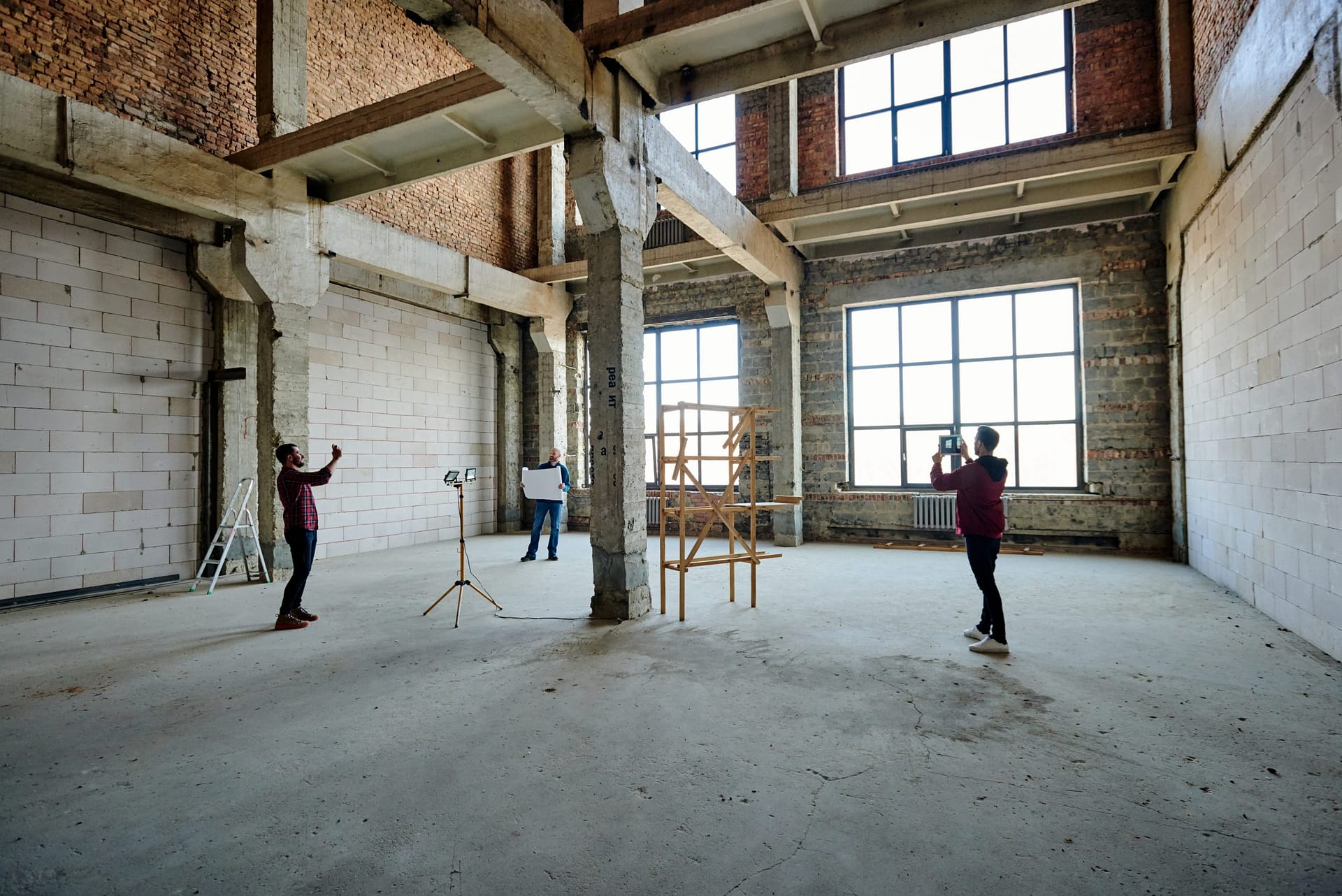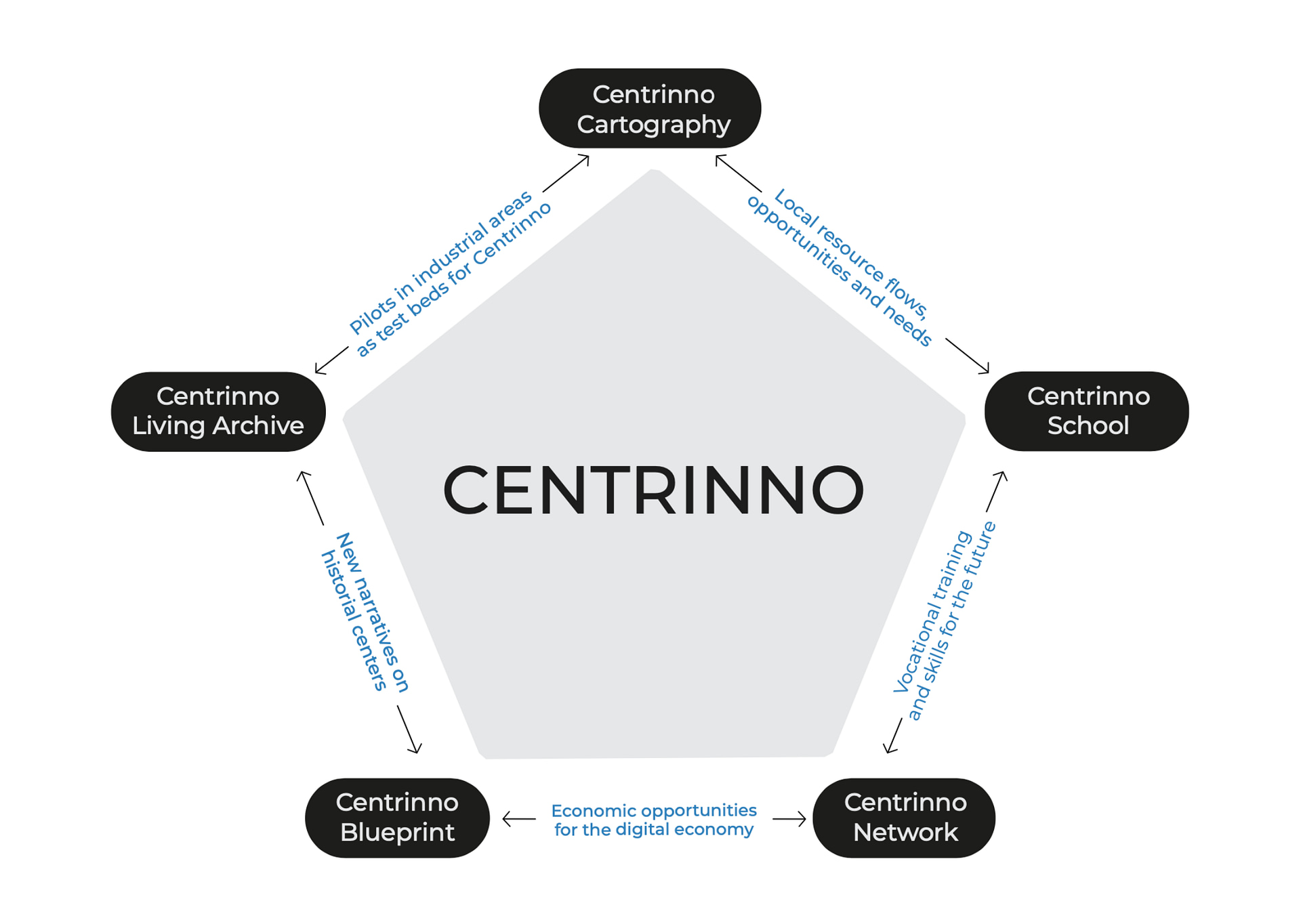CENTRINNO: Heritage as a catalyst for a new industrial revolution
Post-industrial sites as testbeds for circular and inclusive production in nine cities across Europe
Over four years, CENTRINNO is supporting nine pilot projects across Europe to create Fab City Hubs in and around urban industrial heritage sites. Following the Fab City vision of locally productive and socially inclusive cities, CENTRINNO tests urban regeneration strategies that leverage the potential of local makers, small industries, and citizens to become key players in thriving local circular economies. Metabolic Institute helps each pilot city map its urban ecosystem, including stakeholders and key resources. These local ‘cartographies’ will help cities to transform urban brownfields into citizen-driven, socially inclusive hubs that serve as test sites and innovation spaces for circular production.
- Funder: EU Horizon 2020
- Grant Agreement: N°869595
- Partners: Comune di Milano, IAAC, WAAG Society, Fab City Grand Paris, Volumes, Danish Design Center, European Creative Hubs NetworkTalTech, Fab Lab Onl’fait, Fab Lab Barcelona, Pakhuis de Zwijger, Generalitat de Catalunya, Kobenhavns Kommune, Cooperatives Ressources Urbaines Cooperative, Icelandic Textile Center, Reinwardt Academy, HMC, Sony Europe, Poblenou Urban District, MD NEMA, City of Tallinn, University of Iceland, Fab Lab Zagreb, University of Zagreb, Au FIl du Geste
- Participating Cities: Milan, Barcelona, Paris, Amsterdam, Copenhagen, Zagreb, Geneva, Tallinn, Blönduos
- Date: September 2020 – February 2024
A circular city needs space for traditional and innovative manufacturing
Europe’s urban areas were once centers of industrial activity, but globalization has transformed them, along with their economies and their labor force. Industrial sites have increasingly turned from places of production into places of consumption that rely on linear and extractive supply chains. At the same time, regeneration strategies that neglect to consider the local context of post-industrial neighborhoods result in social displacement and loss of traditional manufacturing knowledge. CENTRINNO works on new, inclusive regeneration approaches that combine traditional knowledge of ‘making’ with innovative, circular, and digital production skills.
Weaving local resources around post-industrial sites into circular economies
Metabolic Institute‘s role in the consortium is to develop an integrated approach that allows city pilots to map (waste) resources, tools, skills, and stakeholders present in urban ecosystems surrounding (post)-industrial sites. Our mapping approach begins with a thorough context analysis of post-industrial areas and their material flows from a bird’s-eye view. But since the power of a circular economy lies in the skills, practices, and resources that already exist, CENTRINNO’s mapping methods focus on the bottom-up mapping of stakeholders, such as businesses, makers, and individuals. By helping pilots to collect and visualize these local resource inventories in their networks, we can identify emergent opportunities for circularity within the community.
Tools and methods for circular ecosystem facilitators
The CENTRINNO Cartography is a collection of mapping tools that empower Fab City hubs and other facilitators of circular ecosystems to give momentum to their local circular economy journeys. The resulting maps of local resources and potential resource flows between stakeholders in a city can help to start off and guide a local discussion with stakeholders and policymakers around the importance of local producers in the transition to a circular economy.
















